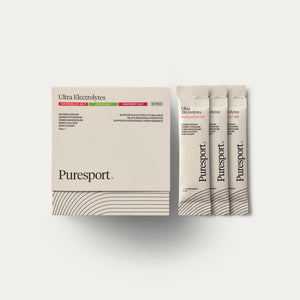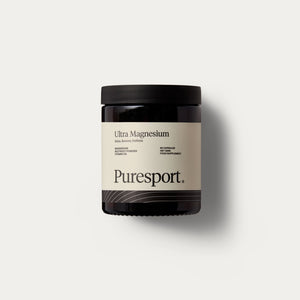Turkey Tail Ingredient Overview
Fungi are an incredibly versatile ingredient known for a range of properties. They can be extremely toxic, or extremely healthy. We’re going to look at one of the healthiest, and most beneficial fungi found in nature: turkey tail.
What is Turkey Tail Mushroom?
The scientific name for turkey tail mushroom is trametes versicolor. Trametes is the genus of the mushroom and versicolor is a Latin word that means “has different colours.” The fungus is known as the turkey tail mushroom because it’s shaped like a turkey tail and it has the same colours as the plumage of a wild turkey.
If you look at the appearance of turkey tail, the outer layer moves inwards in a flower-like shape, graduating from brown to black. Some turkey tail mushrooms may end up looking green because they accumulate a layer of algae on their skin.
The mushroom’s flesh is between 1 and 3 mm thick, and it features a texture that’s reminiscent of leather.
The purple turkey tail mushroom isn’t a different species but rather a turkey tail mushroom that has a rare coloration. Some turkey tail mushrooms will look purple around their edges instead of the usual cream white, though this is also sometimes due to how the light reflects off of them.
These mushrooms don’t have stalks, and they feature flat caps that can be either round or triangular. In most cases, turkey tail mushrooms will grow in layers or rows on the stumps of deciduous trees. These mushrooms are most commonly found in North America.
Turkey Tail Mushroom Benefits
Turkey Tail Mushroom and Blood Pressure
There has been some significant anecdotal evidence linking the effects of taking turkey tail mushrooms and the effect on blood pressure. Hypertension sufferers mention that using turkey tail mushrooms helps them reduce their blood pressure levels.
this anecdotal evidence has attracted some scientific research to look into the medical benefits of turkey tail mushrooms, to see if they coudl be used as a natural alternative to existing medications which are currently prescribed for high blood pressure.
Antioxidant Effects
Oxidative stress is one of the main sources of disease and ageing related changes in the body, and it is caused by an unbalanced level of antioxidants relative to free radicals. Turkey tail contains a wide range of antioxidants, making it an excellent way of controlling oxidative stress as a means of reducing the likelihood of disease.
The most common antioxidants that you’ll find in turkey tail include flavonoids and phenols, and a study determined that there are over 35 different kinds of phenols as well as two flavonoids in turkey tail. Both of these antioxidants are responsible for improving immune system health.
Improved Gut Health
Gut bacteria are linked to our overall health as well as our immune responses, and turkey tail contains prebiotics, which are a key part of supplementing your gut health. A study that took place over the course of eight weeks determined that PSP (one of the ingredients in turkey tail) allowed beneficial gut bacteria to grow.
That same study also found that turkey tail’s active ingredients could make E. coli and Shigella bacteria less likely to take root in the digestive system. Another study, which was conducted in test tubes, determined that turkey tail could help encourage the growth of beneficial bacteria like Lactobacillus.
Is Turkey Tail Mushroom Edible?
Turkey tail mushrooms feature a notably leathery texture which makes them inedible. Keep in mind that this doesn’t mean that turkey tail is toxic, as with other inedible species of mushrooms. If you’re going to consume turkey tail mushroom, it will likely be in the form of a powder or a tea.
Turkey Tail Mushroom Side Effects
Turkey tail is generally considered safe when consumed orally in the form of a powder, but there have been some reports of users experiencing side effects when taking them as a form of chemotherapy treatment. Chemo patients who used PSK extracted from turkey tail reported nausea and vomiting.
Other side effects in chemo patients included liver problems and low white blood cell count. However, it is still unconfirmed whether these side effects were due to the turkey tail supplements or the chemotherapy itself. Further research is required to determine if turkey tail has any potential long term side effects.







